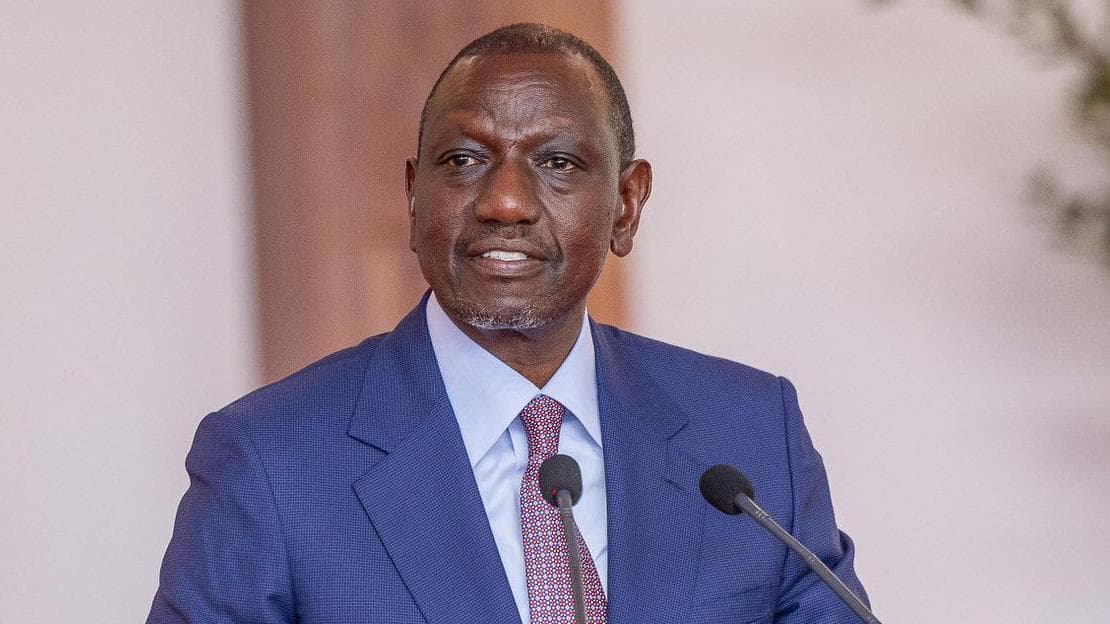We're loading the full news article for you. This includes the article content, images, author information, and related articles.
President Ruto's justification of lethal force comes as human rights organizations report a surge in police-involved killings and disappearances, intensifying the debate on police accountability and the law.

NAIROBI, KENYA – President William Ruto on Tuesday, November 11, 2025, defended the use of force by the National Police Service (NPS), stating that the law permits such actions when lives are in danger. The remarks, reiterating a controversial stance he first took in July 2025, have ignited a fierce debate among legal experts, opposition leaders, and human rights bodies over the statutory limits on police power and the state of police reform in Kenya.
Speaking during a recent interview with Al Jazeera, President Ruto expressed he had "no regrets" over his previous directive for police to shoot violent protesters in the leg. "I don't regret those comments at all, because the law allows the police to use force when other people's lives are in danger," he stated. The President maintained that his administration was not suppressing dissent and asserted the operational independence of the police, clarifying that his comments were an expression of his stance on public safety rather than a direct command. "There is nowhere in the law that allows me to order the police," he added.
President Ruto's justification hinges on Kenyan law, specifically the National Police Service Act of 2011. The Act's Sixth Schedule outlines the conditions for the use of force and firearms. It stipulates that an officer must first attempt non-violent means and may only use force when such measures are ineffective. The force used must be proportional to the objective, the seriousness of the offence, and the resistance of the person.
Crucially, the law permits the use of firearms only under specific, life-threatening circumstances, such as in self-defence or the defence of another person against an imminent threat of death or serious injury. However, human rights groups and legal analysts argue that some provisions of the Act are overly permissive and do not align with international standards, which strictly limit lethal force to situations where it is unavoidable to protect life. In a landmark 2022 decision, the High Court of Kenya invalidated several sections of the NPS Act that allowed police to use firearms to protect property or prevent the escape of a person charged with a felony, ruling them unconstitutional.
The President's comments are set against a backdrop of alarming statistics from human rights watchdogs. A May 2025 report by the Missing Voices Alliance revealed a 450% increase in enforced disappearances and a 12% rise in extrajudicial killings in 2024 compared to the previous year. The report documented 55 enforced disappearances and 104 extrajudicial killings in 2024. Amnesty International Kenya and the Kenya National Commission on Human Rights (KNCHR) have also reported dozens of deaths and hundreds of injuries from police action during nationwide protests over the past year.
The Independent Policing Oversight Authority (IPOA), the civilian body mandated to investigate police misconduct, noted in its January-June 2024 performance report that it had received 1,943 complaints and completed 597 investigations. In its 2022-2023 annual report, IPOA stated it had forwarded 208 cases to the Office of the Director of Public Prosecutions (ODPP), with 170 cases pending in court. Despite these efforts, convictions remain rare, and organizations like Human Rights Watch have consistently pointed to a persistent lack of accountability for security forces.
The President's stance has drawn sharp condemnation from opposition and civil society leaders, who accuse the executive of sanctioning brutality and undermining the rule of law. The Law Society of Kenya (LSK) and Amnesty International Kenya have previously labeled such directives as "unlawful" and dangerously provocative. Civil society groups have called for the President to acknowledge and apologize for police excesses and to ensure that IPOA is adequately funded and supported to conduct independent investigations.
Conversely, some government allies have supported the President's hardline position, arguing it is necessary to deter criminality and the destruction of property during protests. This division highlights the deep political and social polarization surrounding policing in Kenya.
The ongoing debate raises critical questions about the trajectory of police reform in Kenya, a process that gained significant momentum after the 2007-2008 post-election violence. The 2010 Constitution and the subsequent NPS Act were designed to transform the police from a force, often used as a tool of state repression, into a professional service accountable to the public. However, critics argue that a deeply ingrained culture of impunity, systemic corruption, and political interference continue to hamper meaningful change. The current controversy underscores the persistent tension between state security imperatives and the constitutional rights of citizens, placing the future of police accountability in Kenya at a critical juncture.
Keep the conversation in one place—threads here stay linked to the story and in the forums.
Sign in to start a discussion
Start a conversation about this story and keep it linked here.
Other hot threads
E-sports and Gaming Community in Kenya
Active 9 months ago
The Role of Technology in Modern Agriculture (AgriTech)
Active 9 months ago
Popular Recreational Activities Across Counties
Active 9 months ago
Investing in Youth Sports Development Programs
Active 9 months ago